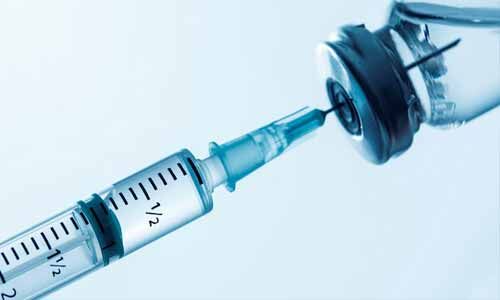- Home
- Medical news & Guidelines
- Anesthesiology
- Cardiology and CTVS
- Critical Care
- Dentistry
- Dermatology
- Diabetes and Endocrinology
- ENT
- Gastroenterology
- Medicine
- Nephrology
- Neurology
- Obstretics-Gynaecology
- Oncology
- Ophthalmology
- Orthopaedics
- Pediatrics-Neonatology
- Psychiatry
- Pulmonology
- Radiology
- Surgery
- Urology
- Laboratory Medicine
- Diet
- Nursing
- Paramedical
- Physiotherapy
- Health news
- Fact Check
- Bone Health Fact Check
- Brain Health Fact Check
- Cancer Related Fact Check
- Child Care Fact Check
- Dental and oral health fact check
- Diabetes and metabolic health fact check
- Diet and Nutrition Fact Check
- Eye and ENT Care Fact Check
- Fitness fact check
- Gut health fact check
- Heart health fact check
- Kidney health fact check
- Medical education fact check
- Men's health fact check
- Respiratory fact check
- Skin and hair care fact check
- Vaccine and Immunization fact check
- Women's health fact check
- AYUSH
- State News
- Andaman and Nicobar Islands
- Andhra Pradesh
- Arunachal Pradesh
- Assam
- Bihar
- Chandigarh
- Chattisgarh
- Dadra and Nagar Haveli
- Daman and Diu
- Delhi
- Goa
- Gujarat
- Haryana
- Himachal Pradesh
- Jammu & Kashmir
- Jharkhand
- Karnataka
- Kerala
- Ladakh
- Lakshadweep
- Madhya Pradesh
- Maharashtra
- Manipur
- Meghalaya
- Mizoram
- Nagaland
- Odisha
- Puducherry
- Punjab
- Rajasthan
- Sikkim
- Tamil Nadu
- Telangana
- Tripura
- Uttar Pradesh
- Uttrakhand
- West Bengal
- Medical Education
- Industry
Early introduction of Heparin in DIC reduces mortality risk

A new study published in the International Journal of Clinical Practice suggests that heparin introduction during early stages of disseminated intravascular coagulation (DIC) might shorten patients' hospital stay and fatality rates.
A serious clinical syndrome called disseminated intravascular coagulation manifests as systemic activation of the homeostatic system, which increases thrombin deposition and produces microvascular thrombi. Heparin works well to treat hypercoagulability conditions by inhibiting thrombin. The current study by Navid Omidkhoda and colleagues attempted to synthesize and analyze the findings of cohort studies and randomized clinical trials addressing the impact of heparin and its preparations on DIC mortality and hospitalization time.
After screening the remaining 2538 articles, which numbered 3288 in total but contained 750 duplicate entries, the initial systematic literature search produced 3288 articles. A total of 62 articles were reviewed through the complete texts after the screening of titles and abstracts resulted in the exclusion of 2473 records, leaving 65 articles available for retrieval. Three of these articles were not retrievable.
The key findings of this extensive review:
- Eight papers were qualified to be included in this analysis out of 3288 publications.
- Six RCTs and two retrospective cohort studies with 950 people who had DIC diagnoses were found in this analysis.
- Four trials found that heparin had a substantial impact on DIC mortality.
- In three trials, heparin served as the control group.
In conclusion, it can be put forth that giving heparin and its preparations to DIC patients may shorten their stay in the hospital and lower their death rate, especially if they receive them early in the course of their illness.
Reference:
Omidkhoda, N., Abedi, F., Ghavami, V., Rahimi, H., Samadi, S., Arasteh, O., & Mohammadpour, A. H. (2022). The Effect of Heparin and Its Preparations on Disseminated Intravascular Coagulation Mortality and Hospitalization: A Systematic Review. In A. Mansour (Ed.), International Journal of Clinical Practice (Vol. 2022, pp. 1–9). Hindawi Limited. https://doi.org/10.1155/2022/2226761
Neuroscience Masters graduate
Jacinthlyn Sylvia, a Neuroscience Master's graduate from Chennai has worked extensively in deciphering the neurobiology of cognition and motor control in aging. She also has spread-out exposure to Neurosurgery from her Bachelor’s. She is currently involved in active Neuro-Oncology research. She is an upcoming neuroscientist with a fiery passion for writing. Her news cover at Medical Dialogues feature recent discoveries and updates from the healthcare and biomedical research fields. She can be reached at editorial@medicaldialogues.in
Dr Kamal Kant Kohli-MBBS, DTCD- a chest specialist with more than 30 years of practice and a flair for writing clinical articles, Dr Kamal Kant Kohli joined Medical Dialogues as a Chief Editor of Medical News. Besides writing articles, as an editor, he proofreads and verifies all the medical content published on Medical Dialogues including those coming from journals, studies,medical conferences,guidelines etc. Email: drkohli@medicaldialogues.in. Contact no. 011-43720751


